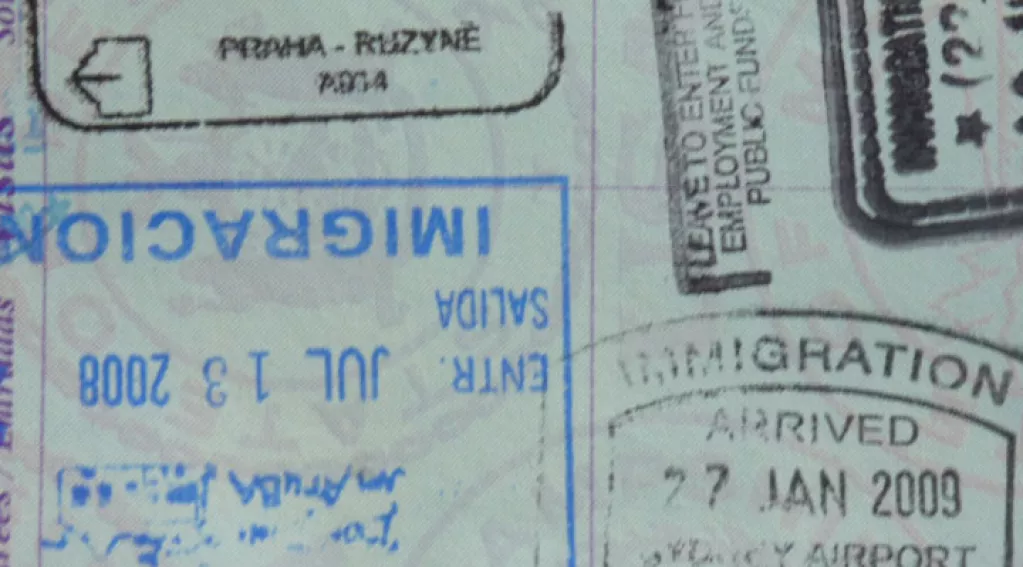China is Outsmarting the Visa System to Gain An Intelligence Edge

On Monday, the Justice Department announced the arrest of Zhongsan Liu on charges of conspiring to fraudulently obtain research scholar visas for Chinese government employees whose real intention was not to gain an education, but to conduct intellectual and national security espionage.
According to the complaint, Liu tried to secure J-1research visas at several U.S. academic institutions for Chinese officials. In turn, those officials sought to recruit scientists, engineers, and other experts to go to work in China as part of an effort to obtain American intellectual property.
Liu, who ran a Chinese government front group called the China Association for International Exchange Personnel, also was connected to China’s Thousand Talents Plan, a state-backed program launched in 2008 for the purposes of encouraging Chinese students and academics to pursue research knowledge in the STEM fields outside of China. Chinese nationals comprise about one-third of the 1.2 million foreign students in the U.S.
“Rather than helping to bring students to the U.S., Liu allegedly conspired to defraud this country’s visa system to advance his efforts to attract U.S. experts to China,” said U.S. Attorney Geoffrey S. Berman.
Monday’s indictment simply confirms the degree to which China is willing to illegitimately use the theft of technology and intellectual property to achieve its legitimate national security interests.
Last month, Feng Tao, a University of Kansas researcher, was indicted on federal fraud charges for not disclosing that he also was a full-time professor at a university in China, while a former Los Alamos National Laboratory scientist was charged in May with lying to officials about his connections to the Thousand Talents Plan.
In July, FBI Director Christopher Wray specifically pointed to the Thousand Talents Plan as a primary means that China is employing to gain access to critical economic and national security intelligence.
“There is no country that poses a more severe counterintelligence threat to his country right now than China,” Wray told the Senate Judiciary Committee. “They’re doing it through Chinese intelligence services, through state-owned enterprises, through ostensibly private companies, through graduate students and researchers, through a variety of actors all working on behalf of China,” he added.
The strategy is not anew one, nor are China’s activities unknown to intelligence specialists.
Speaking at a 2018Aspen Institute conference, William Evan in a, director of the NationalCounterintelligence and Security Center, argued that while most students “are here legitimately and doing great research,” the reality is that academia “is a tool that is used by the Chinese government to facilitate nefarious activity here in the US”.
The State Department announced in June 2018 that limits would be placed on Chinese (PRC) national students and others involved in certain high-technology fields, including increasing the number of cases subject to interagency clearance.
Not surprisingly, members of the media and academia responded with the dramatic outrage which has become too common regarding the administration’s immigration enforcement efforts. While those sheltered in their ivory towers or newsrooms see even the most limited restrictions on student visas as an overreach, others argue that the U.S. government and academia are falling well short of adequately combating espionage threats.
“Where theft of ideas, programs, plans, and technology is concerned, as with the trade imbalance, China (and almost certainly other nations as well to a greater or lesser degree) is cleaning our clocks,” said Center for Immigration Studies (CIS) fellow Dan Cadman in an August report on weaknesses in the student visa program.
Recognizing that there is a problem may be the easy part, as the solutions are likely to require some semblance of balance between what is gained by having foreign students in universities and colleges and what is lost by even just a few bad actors stealing American intellectual property.
Of the 1.2 million international students, thousands hail from nations which are openly hostile to the U.S., including some 13,000Iranians, 10,000 Turks, 5,500 Russians, and more than 700 Syrians. It is hardly unreasonable to call for increased scrutiny and enhanced monitoring of all who are in the U.S. on student visas.

